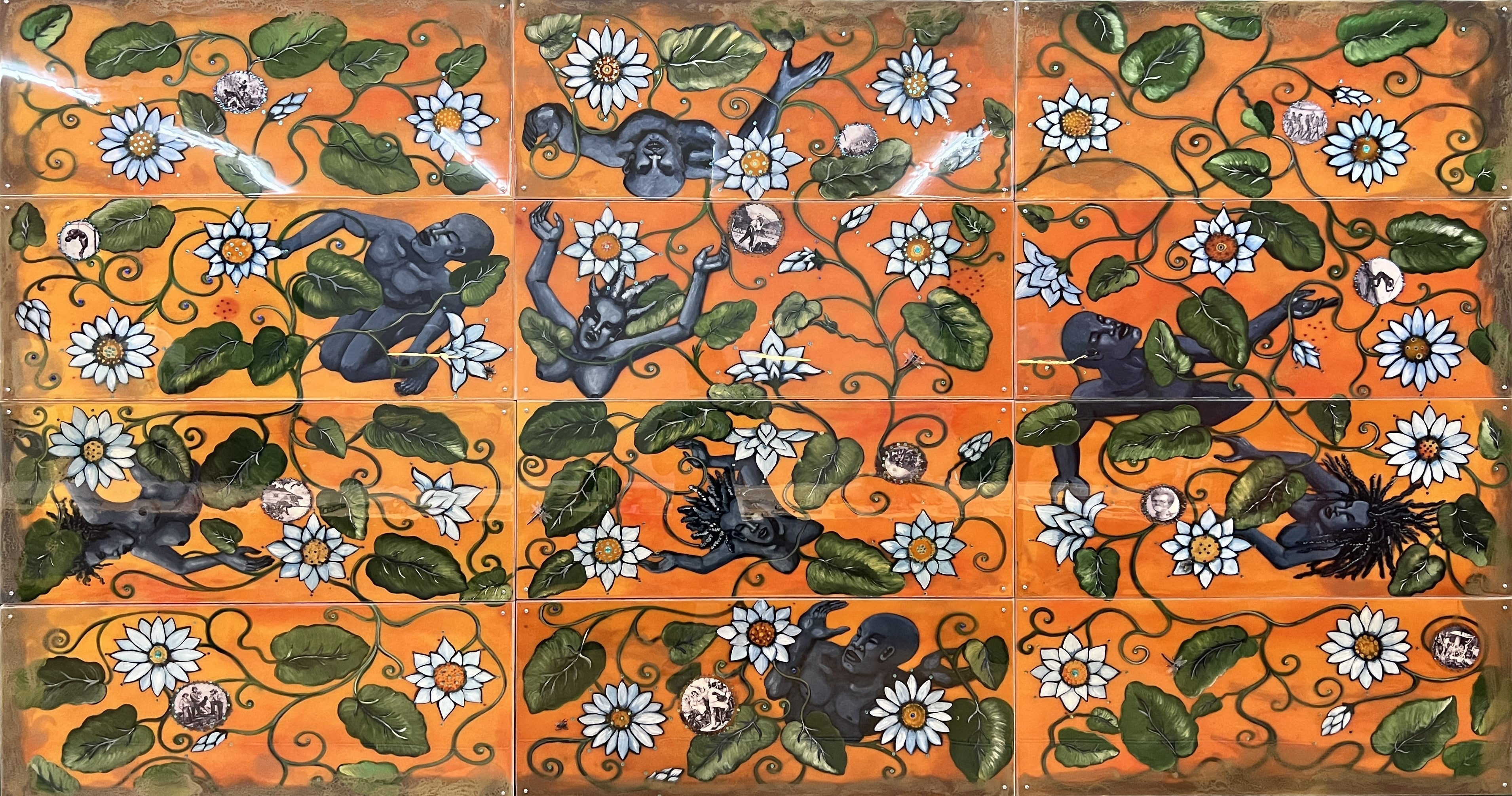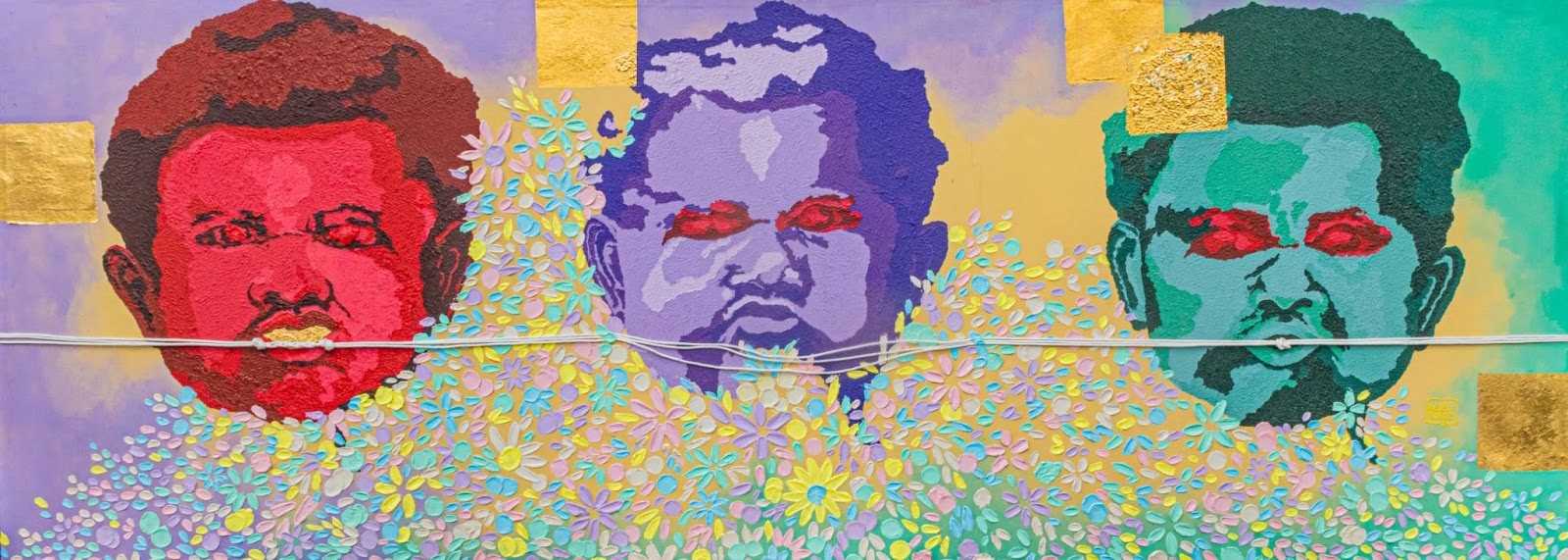
Sarah's Stories: Black Joy and Resilience at 'When We See Us' in Basel
The Rhine sparkles as I walk through Basel, a city where tradition meets contemporary art. My destination is Kunstmuseum Basel, where the "When We See Us" exhibition awaits—a must-see for anyone who appreciates art that challenges and uplifts by celebrating Black joy and resilience. Basel's vibrant culture sets the perfect backdrop for this transformative experience.

As I step into Kunstmuseum Basel, the vibrant “When We See Us: A Century of Black Figuration in Painting” unfolds before me, marking its first European appearance after being originally conceived by Zeitz Museum of Contemporary Art Africa (MOCAA) in Cape Town. Spanning all four floors of the Gegenwart building, the exhibition explores Black self-representation. This landmark exhibition brings together artworks from the past 100 years by Black artists worldwide. When We See Us boldly examines how these artists have depicted their experiences through six themes: Triumph and Emancipation, Sensuality, Spirituality, Joy and Revelry, the Everyday, and Repose.
The title of the exhibition, inspired by the 2019 Netflix miniseries When They See Us by Ava DuVernay, thoughtfully replaces "they" with "we" to shift the focus toward joyful self-representation and to tell a more positive narrative about Black people seeing and expressing themselves on their own terms. Over the last decade, figurative painting by Black artists has gained new prominence, connecting these practices to deeper historical contexts and revealing the complex genealogy rooted in African and Black modernities. When We See Us celebrates the resilience, essence and political charge of Black joy.
Wandering through the exhibition, I am struck by the diverse portrayals of Black skin—from rich copper and deep mahogany to midnight blue. This rich variety reflects the influence of various art schools, collectives, and traditions over the last century, showcasing both evolution and connection in artistic expression. The exhibition’s serene and inclusive atmosphere complements this exploration, with its minimalist design and ample natural light creating a calm space where the vibrant artworks stand out. Comfortable lounge areas invite visitors to relax, engage deeply with the themes, and reflect thoughtfully, celebrating and empowering joyful self-representation.

Let’s delve more deeply into the main themes: Triumph and Emancipation, Sensuality, Spirituality, Every Day and Repose.
Triumph and Emancipation
Walking through the exhibition, the themes of victory and freedom immediately stood out. Kehinde Wiley’s portrait of Ghanaian footballer John Mensah, celebrating his participation in the 2010 World Cup, captures a historic moment as South Africa became the first African nation to host the event. It’s a powerful reminder of resilience and triumph on a global stage.

This connects to the ‘identity narrative’ one can observe in Olasunkanmi Oyelusi’s artwork Prof (2024), portraying Nigerian Nobel Prize winner Wole Soyinka.
Sensuality
The Sensuality section dives into themes of pleasure, leisure, and desire. I was particularly struck by British artist Tunji Adney Jones’s Turbulent Youth (2021), where dark blues and purples convey movement and energy, inspired by Nigerian, Yoruba heritage iconography.

This creates an interesting parallel with Chike Emembo’s Lovers #1, where ‘Shuku’ meets her significant other.
Repose
Focusing on Repose, this part of the exhibition highlights restfulness, stillness, and ease, with artworks featuring figures at peace with themselves. Tanzanian artist Sungi Mlengega’s painting of two women with intertwined arms uses minimalist forms and negative space to explore themes of empowerment.

This resonates with Judith Yahaya’s Being I, which illustrates the courage of being oneself.
Spirituality
As I walked through the Spirituality section, Edouard Duval-Carrié’s The True Story of the Water Spirits immediately drew me in with its vibrant colours and fluid movement. Composed of 16 lacquered floor panels, its bright orange backdrop and surreal Haitian iconography narrated the perilous journey of enslaved Africans across the Atlantic, blending beauty, myth, and history in a way that left a lasting impression.

This layered approach is mirrored in Chike Emembo’s Bathsheba, where vibrant colours conceal a contemporary retelling of an old biblical story.
The Everyday
The final section, The Everyday, captures the essence of daily life through scenes like mealtime and solitude.

I was attracted to the serenity and introspection mood of Zandile Chabalala’s The Conversation (2020) where the young talented South African artist Zandile Chabalala challenges the peripheral role of Black women in Western art history by portraying them with dignity and power. This calmness reminds of Judith Yahaya’s Journey of a Thousand Miles, reflecting the multifaceted nature of migration in Nigeria.
As you immerse yourself in When We See Us, I hope you've enjoyed this landmark exhibition as much as I did. It’s a journey through the richness of Black figuration and the powerful stories behind each theme. Be sure to follow us on Instagram and Facebook for more stunning highlights and stay connected with Black Artistry on unx-art. Come and discover the exhibition for yourself, and let us know what it evokes in you.








